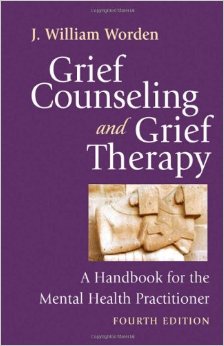Models of grief integration: Four Tasks of Mourning
Overview
History of development
Detail
Worden's Four Tasks of Mourning
Psychologist J. William Worden’s (1991) framework of four tasks discusses people’s journey through grief. Healing occurs progressively as grievers address these tasks, in no specific order, going back and forth from one to another over time, since grief is not linear.
Worden doesn’t believe that a person is carried through grief via a passive progression of stages. Rather, Worden empowers mourners to actively engage with four tasks.
Each task assists to normalise grief responses, and empower clients to perceive grief as an active process they can work through, rather than a passive process that impacts on them.

What are Worden's Four Tasks of Mourning?
Task 1: Accept the reality of the loss
This task deals with therapists’ efforts to assist the survivors with believing the impossibility of reunion, at least in this life. The searching behaviour is directly connected to this task. There are paramount considerations, including denial of the loss facts, selective forgetting, mummification, religion spiritualism (i.e., the hope for a reunion with the deceased), denial of the death irreversibility, and “middle knowledge”.

Task 2: Process the pain of grief
The survivor needs to analyse the pain of loss to fulfill the pain process and inhibit suppressing or ignoring the pain. Survivors can prevent this task by not feeling, geographic cure, using alcohol or drugs, idealizing the deceased, and avoiding reminders of the deceased. Insufficient fulfillment of this task could then result in a more problematic return and pass the pain that has been inhibited.
Task 3: Adjust to a world without the deceased
In this task, three realms of adjustment should be taken into account after a loss, including internal adjustments (the impact of the loss on one’s sense of self), external adjustments (the impact of the loss on one’s everyday functioning in the world), and spiritual adjustments (the influence of the loss on one’s values, beliefs, and assumptions about the world).
Task 4: help the survivors find an appropriate place for the deceased in their emotional life
This task is intended to provide a place that helps the survivors to lead a fruitful life in the world. William Worden has interpreted this task as “finding a way to remember the deceased while embarking on the rest of one’s journey through life”.